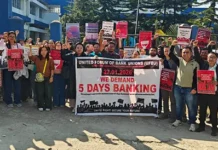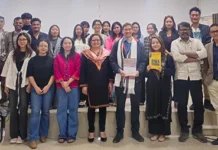[Sachin Rana]
In recent years, online activism has become a powerful force in promoting social change. With the rise of social media platforms such as Twitter, Instagram, YouTube, and Facebook, individuals and organisations are able to reach large audiences and spread their messages economically, quickly and easily. This article will explore the power of online activism and how it is changing the game in promoting social change.
The internet has given individuals a platform to share their opinions and engage in discussions about important social issues. Social media platforms have enabled users to share their views and raise awareness about a range of topics, from climate change to social justice. Online activism has become a tool for individuals and organisations to promote their cause and reach a wider audience on usual basis.
One of the most significant benefits of online activism is its ability to connect people from all over the world. Social media platforms allow individuals to share their experiences and connect with others who share similar beliefs and values. This creates a sense of community and helps to build a movement around a particular issue.
Online activism has also been instrumental in creating change in areas where traditional forms of activism have failed. For example, the #MeToo movement, which started as a hashtag on social media, has brought attention to sexual harassment and assault in a way that was not possible before. The movement sparked conversations and raised awareness about the prevalence of sexual harassment and assault, leading to policy changes and greater accountability for perpetrators.
In addition to raising awareness, online activism can also be used to mobilise individuals and communities. Social media platforms allow individuals to organise events, protests, and rallies. The Black Lives Matter movement, for example, used social media to mobilise individuals and communities to protest against police brutality and systemic racism. Social media was also used to document instances of police brutality, bringing attention to the issue and sparking a national conversation. Online activism has also been effective in holding individuals and institutions accountable.
Social media have given a voice to individuals who had been silenced or marginalised in the past. They have enabled individuals to share their stories and experiences, and to hold those in power accountable for their actions. However, online activism is not without its limitations. While it has been effective in raising awareness and mobilising individuals, it can also be used to spread misinformation and fake news. Social media algorithms can also create echo chambers, where individuals are only exposed to information and opinions that align with their own beliefs. This can create a polarisation of opinions and hinder productive dialogue.
Another limitation of online activism is that it can be difficult to measure its impact. While social media platforms provide data on engagement and reach, it can be difficult to determine the extent to which online activism has contributed to real-world change. It can also be difficult to sustain momentum and keep individuals engaged over the long term.
Additionally, one of the major drawbacks of online activism is the ease with which it can be co-opted by corporations and political organisations. Many companies and politicians have started to use social media platforms to promote their own agendas, often by co-opting hashtags and other online movements that were originally started by grassroots activists. In some cases, these companies and politicians may even use online activism as a way to distract people from their own unethical practices or policies.
Another negative aspect of online activism is the potential for it to become performative rather than substantive. With the rise of social media influencers and the increasing importance of personal branding, many people engage in online activism as a way of signalling their own virtue, rather than actually making a difference. This can lead to a situation where online activism becomes more about being seen as ‘woke’ or ‘progressive'” than about actually effecting change.
In addition, online activism can also be highly polarising and divisive. Social media platforms are designed to promote engagement and interaction, but this can often lead to echo chambers where people are only exposed to views that confirm their own biases. This can lead to a situation where people become more entrenched in their own views and less willing to engage in productive dialogue with those who hold different opinions.
Another potential negative aspect of online activism is the risk of online harassment, bullying, and trolling. While online activism can be a powerful tool for promoting social justice and equality, it can also be a breeding ground for hate speech and online harassment. In some cases, online activists may resort to tactics like doxxing or swarming in order to intimidate or silence those who disagree with them.
Finally, online activism can also be limited in its ability to effect real-world change. While social media platforms have the potential to amplify voices and raise awareness about important issues, they are not a substitute for real-world organising and activism. In order to effect real change, online activists must be willing to engage in offline activism as well, such as participating in protests, lobbying their elected representatives, and supporting local organisations that are working towards social justice and equality.
Despite these limitations, online activism has proven to be a powerful tool for promoting social change. It has enabled individuals and organisations to connect with a wider audience, mobilise communities, and hold those in power accountable for their actions. With the continued growth of social media platforms and the increasing use of technology in activism, it is likely that online activism will continue to play an important role in promoting social change in the future. However, the need is to be sensitive and tolerant of other views, which is the essence of democracy. (The writer is an IAS officer, presently serving in Arunachal. The views expressed are personal.)





